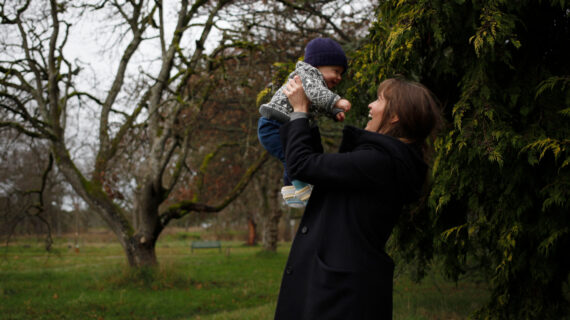In a speech earlier this month, former finance minister Bill Morneau made it clear how uneasy he is with the direction of the government he used to belong to.
Morneau said he was worried that Canada’s economy is lagging due to slow productivity growth under a government that is more concerned with short-term political issues.
“So much time and energy was spent on finding ways to redistribute Canada’s wealth that there was little attention given to the importance of increasing our collective prosperity—let alone developing a disciplined way of thinking and acting on the problem,” said Morneau at the C.D. Howe Institute’s annual directors’ dinner on June 1.
Morneau was about the closest thing the current government had to a “Blue Liberal,” one of the socially progressive but fiscally prudent members who once dominated the party. Prominent examples are Paul Martin, who made his career slashing federal budgets in the 1990s, and party stalwart John Manley, who went on to be CEO of the Business Council of Canada after his stint in politics.
After Morneau’s speech, some inside the party are asking whether there’s room for Blue Liberals in the red tent anymore.
Unsound money
Adam Pankratz is a self-described Blue Liberal, and critic of the government’s direction. A lecturer at the University of British Columbia’s business school, Pankratz was the Liberal nominee for the Greater Vancouver riding of Burnaby South in 2015. Despite narrowly falling short in his riding, Pankratz was initially optimistic when Justin Trudeau formed his first government following the election.
“I think that a lot of people were very happy with the Liberals to start, and I would put myself in that camp,” says Pankratz. “And then things started to slowly change.”
Believing in fiscally conservative, pro-business policies, combined with socially liberal stances, Pankratz would have blended in perfectly with the Liberals who governed Canada from 1993 to 2006. They were among the first governments in world history to legalize same-sex marriage and signed accords designed to close the economic gaps between Indigenous and non-Indigenous Canadians.
Those governments also regularly delivered budget surpluses and were unafraid to legislate the deepest federal spending cuts in Canadian history since the Second World War, which stabilized the troubled economy of the 1990s.
“That was always the Liberal Party I supported, from even when I was in high school,” says Pankratz.
Despite Morneau’s misgivings about the government’s fiscal direction, critics point out he still oversaw every budget deficit of Trudeau’s government until resigning in 2020. Nonetheless, said Pankratz would not be surprised if Morneau was privately uncomfortable spending the money he did under Trudeau’s direction as finance minister.
Although fiscally conservative, Pankratz was comfortable with Trudeau’s initial promise in 2015 to run just three years of relatively minor deficits under $10 billion before returning to balance. At the time, Pankratz accepted the possibility of that projected deficit fluctuating within reason.
“I did not think the deficit would get as big as it has now,” says Pankratz. “I didn’t see concern that if he did run a bit of a deficit, that it was going to really go a lot higher.”
However, by the end of Trudeau’s first term in 2019, the budget deficit was over $40 billion. In March, the deficit sat at almost $113.8 billion and is expected to be $52.8 billion for 2022-2023.
While agreeing with the government’s initial decision to flood the economy with cash as an economic response to COVID-19, Pankratz says it reflects the need for fiscal responsibility during prosperous times.
Beyond fiscal policy
Pankratz says it became clearer with time that some Liberal MPs who won ridings in 2015 left the party due to discomfort with the government’s direction, both financially and otherwise. Pankratz said Trudeau’s embrace of identity politics to divide and wedge is another reason for his alienation from the Liberals.
“We didn’t really know what they (identity politics) were at the time, but they were slowly seeping into the party and it was becoming a party that was more interested in sowing division,” says Pankratz.
Pankratz believes the Liberals have done a lot of good for Canada, and still can, but says the party has no clear policy initiatives at this point.
“A lot of it is just consistently irrelevant things that lay traps for the Conservatives to fall in,” says Pankratz. “They’re initiatives designed to create political advantage, not to make the country better, and I have a big problem with that.”
Pankratz believes there is still common ground between the various factions, or former factions, of the Liberals, but that divisions in the party widened as politics became more extreme.
Blue Liberals are not the only ones concerned by the growing polarization of Canadian politics.
Anger and grievance
“Most Canadians, including Liberals and others, aren’t interested in furthering politics of anger and grievance that exploit our nation’s cultural cleavages,” said Azim Jiwani, via email.
Jiwani is the co-founder and executive director for Centre Ice Conservatives, an advocacy group recently formed to provide a platform for centrist conservatives who reject the culture wars and populist tendencies that have emerged in right-of-centre politics. While the CIC was founded to represent moderate conservative voters, Jiwani says there is room for Blue Liberals who believe in fiscal responsibility and liberal social policies.
“We wanted to give a voice to Canadians like us who believe in good governance, respecting individual freedoms, and responsible long-term economic stewardship,” wrote Jiwani. “To me, that would include many ‘Blue’ federal Liberals who feel displaced right now.”
Not Tories yet
A May 15, 2022 poll by EKOS Research Associates showed the Conservatives ahead of the Liberals by six points. However, Frank Graves, EKOS’s founder and president, says that while Blue Liberals are a significant voter bloc, they aren’t the source of the Conservatives’ polling fortunes.
“I do not think that this is an area where CPC are making much inroads at this time. This segment may find comments about crypto and firing the governor of the Bank of Canada off-putting,” wrote Graves over email.
The comments referenced by Graves were made by Pierre Poilievre, the Conservative leadership race’s frontrunner. Poilievre has vocally supported the introduction of cryptocurrency into the Canadian economy, and publicly criticized the Bank’s failure to curb inflation.
Graves says former Conservative leader Erin O’Toole made inroads with Blue Liberals early in the 2021 federal election but mostly lost them after changing his positions on issues like gun control mid-campaign.
“The Blue Liberals are an important voting bloc of the Liberals, particularly as they have lost ground with millennial voters in recent years,” wrote Graves.
Not ready to abandon the party
With the rise of populism and polarization, the idea of new centrist parties made up of moderates from across the political aisle has become common in the Western world, with varying degrees of success.
While there may be many issues that Blue Liberals and moderate Conservatives in Canada may agree on, only one of Trudeau’s MPs has ever been comfortable enough with the Conservatives to cross the floor.
Pankratz says it is wrong to believe all disaffected Liberals want to abandon the party or see it fail.
“The misconception is that there isn’t a desire to come together under a united Liberal Party again, or that there isn’t the desire to have a strong Liberal Party,” explains Pankratz. “That’s not the case at all.”




